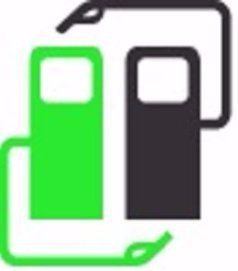Diesel in gasoline? wrong fueled?
Motorists usually know which fuel they need to refuel. But what is the difference between gasoline and diesel, is usually not known.
Diesel in the gas tank: Damage to the fuel injection system can not be ruled out. Petrol engines ignite the fuel with a spark igniter, that is with a spark plug. Diesel engines ignite themselves by high fuel pressure.
A gasoline engine does not run on diesel fuel. If you have fueled a gasoline vehicle with diesel, you can start easily, because in their lines plenty of gasoline flows into the cylinders. The spark plugs can not ignite the diesel eventually and there would be no explosion in their engine. The engine would go out.
Difference between gasoline and diesel
The fuels gasoline and diesel have a lot in common, but also important differences.
- The basis of both types of fuel is crude oil. Crude oil is produced in refineries and is not yet usable as a fuel at the time of origin. It is a mixture of almost 500 different fabrics and has the well-known black color, as you know it from motor oil. Only through the respective processing, the differences arise.
- Gasoline and diesel consist of different lengths of molecular chains, or more precisely, a series of hydrocarbon particles. At the refinery, the various chains of hydrocarbons are separated and rearranged to produce the desired materials.
- After separation and reordering, gasoline has a much shorter molecular chain than diesel - that's the biggest difference between the two varieties. A short molecular chain has the advantage that the substance is flammable much faster. Therefore, it is much easier to ignite gasoline, because it has the shorter chain. For the ignition of the long chain of molecules in diesel you need much more energy.
- In addition to the length of the molecular chains, the weight also differentiates between the two fuels. Diesel has a higher specific gravity than gasoline.
- Also, the emission of carbon dioxide is higher in diesel than in gasoline, which ensures that an old diesel vehicle often has worse environmental values than a gasoline vehicle of the same age.
Diesel in gasoline - wrong fueled, what to do?
Now that you know what the real difference is, let's explain what you can do if you miss the wrong thing:
- If you notice while refueling that you have fueled the wrong fuel, stop the refueling process.
- Now you can call us immediately or contact the petrol station staff.
- You must not start the car as the fuel must not get into the engine.
- Whether you use diesel instead of petrol or gasoline instead of diesel makes no difference to today's engines, because in both cases significant damage to your engine is possible.
- In both cases you have to pump the tank empty, otherwise serious damage will occur.
- Only an old diesel engine can handle a small amount of gasoline, but you should not try it. Because engine damage is always a very expensive consequence.
With gasoline vehicles, you have usually good chances that the engine will work again, if you clean the fuel lines and the fuel tank expertly and pumped out.










